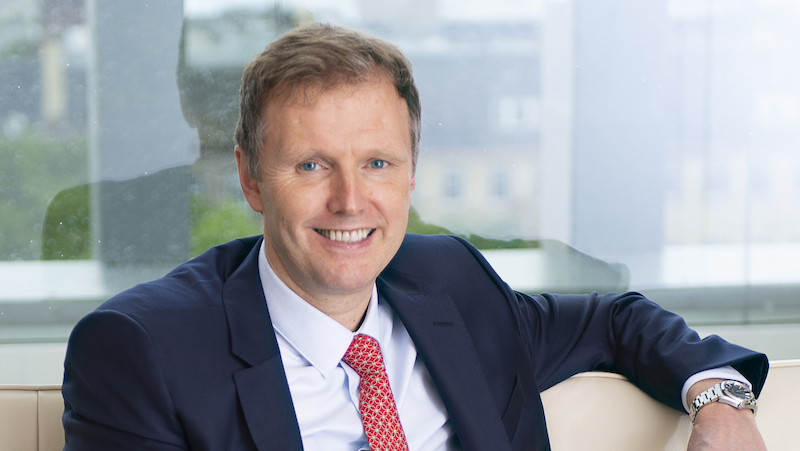Abrdn chief executive Stephen Bird got straight to the point, acknowledging in the opening sentence of the firm’s H1 results that they “largely reflect the challenging global economic environment and market turbulence”.
The asset manager swung to a £320m loss for the first six months of 2022, having banked a profit of £113m during the same period last year. Its fee-based revenue was down 8% at £696m from £755m, with adjusted operating profit taking a 28% hit to end H1 at £115m.
By midday on Tuesday, Abrdn’s share price had fallen 4.4% to £1.65. Since the start of 2022, it is down 33% from £2.48.
Assets under management and advice plunged to £508bn at the end of June, down from £542bn at the end of 2021. A significant proportion of this, however, reflected the final Lloyds Banking Group (LBG) withdrawal of £24.4bn.
In 2018, Lloyds announced it would be pulling a £35bn mandate from Abrdn (then Standard Life Aberdeen) and handing it to Schroders and Blackrock.
Bird (pictured) added: “When I became CEO in late 2020, I said that we would pursue a strategy of diversification by refocusing our investments business into areas of strength, where we have scale and that lean into global growth trends and also significantly expand our reach into the higher growth UK wealth market.
“We are doing exactly that, and the addition of Interactive Investor transforms our UK retail presence and future revenue streams. The strength of our balance sheet means that we can continue to invest and reward shareholders.”
Abrdn splits its business into three vectors: investment, advice and personal.
The investment vector saw an 11% drop in fee-based revenue and 40% lower adjusted operating profit. The company added that “overall costs within the vector remain too high and a range of initiatives are underway to address this”.
In April, the decision was taken to shut two strategies; its top-quartile ASI Short Duration Credit and ASI Emerging Markets Bond funds, after both struggled to retain assets.
The adviser vector delivered a 6% uptick in fee-based revenue, with adjusted operating profit up 3%.
As for the personal vector, May 2022 saw Abrdn complete its acquisition of Interactive Investor, with the £1.5bn price tag raising more than a few eyebrows. As previously reported, Abrdn’s personal wealth business is being moved under II chief executive Richard Wilson, who succeeds the outgoing Caroline Connellan, who is leaving the business after less than a year.
International push pays dividends for LGIM
Separately, Legal & General Investment Management’s push into international markets is paying off, with overseas clients delivering half of its net inflows in the first six months of the year, a continuation of the theme started last year.
Total net inflows for H1 were £64.7bn, up from £27.4bn a year ago, but £195.3bn was lost off the back of negative market movements, resulting in assets under management falling by £131.8bn to £1.29trn at of 30 June, down from £1.42trn at the start of the year.
Operating profit was pretty consistent at £200m, versus £204m a year ago, which LGIM described as “resilient in light of market conditions”.
Looking forward, LGIM said it “continues to focus on attracting higher margin net flows and on diverifying and further internationalising its business”. It is seeking profit growth in the range of 3-6% per annum.
Over half of inflows in H1 2022 came from international clients, with AUM doubling over the last five years to hit £468bn, as the group continues to build out its international retirement solutions franchise. It has made “excellent progress” in the US and is making inroads in Europe and Asia, LGIM added.
See also: Justin Onuekwusi: ‘I’ve never seen so much uncertainty on the short-term growth outlook’










